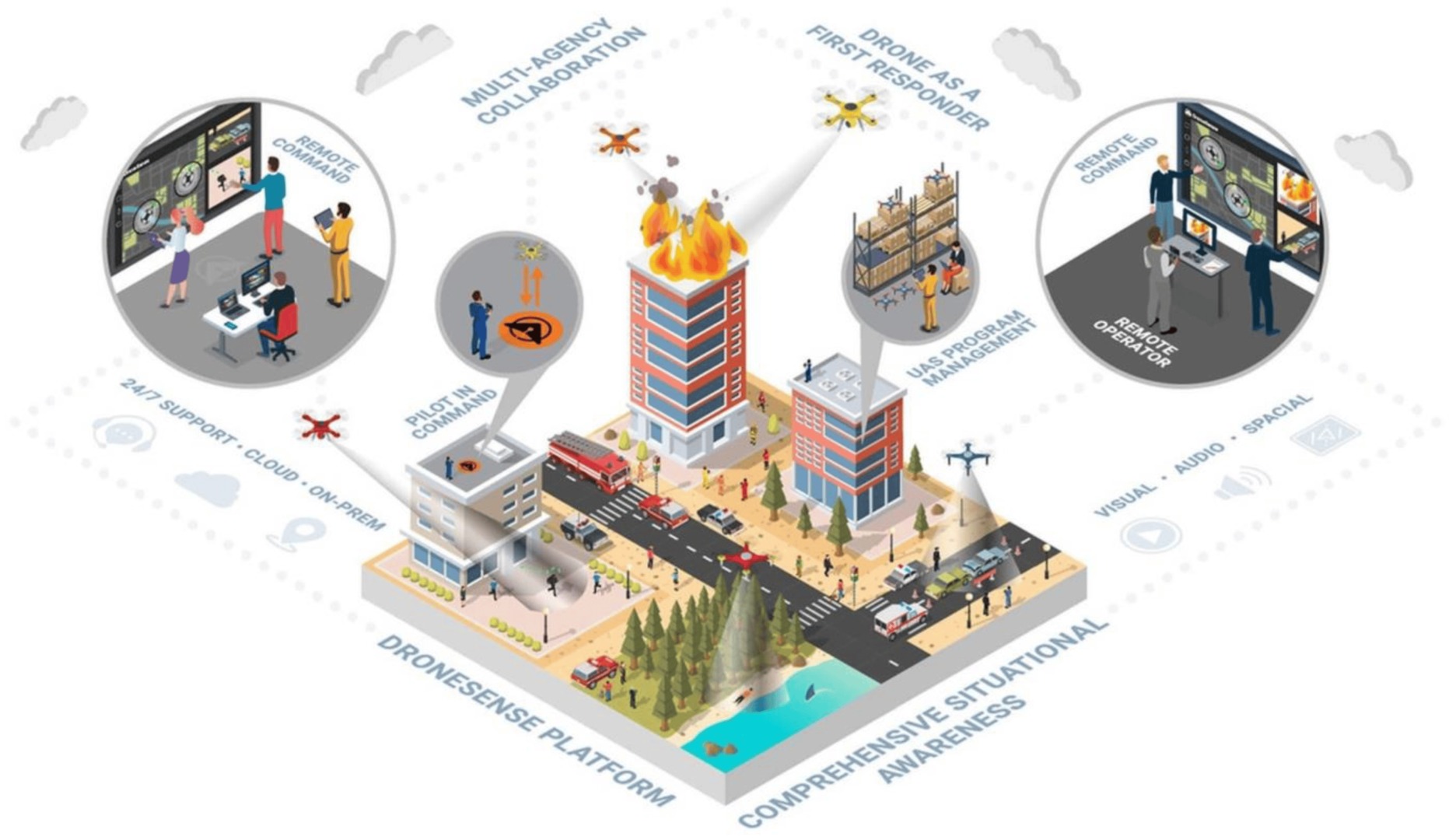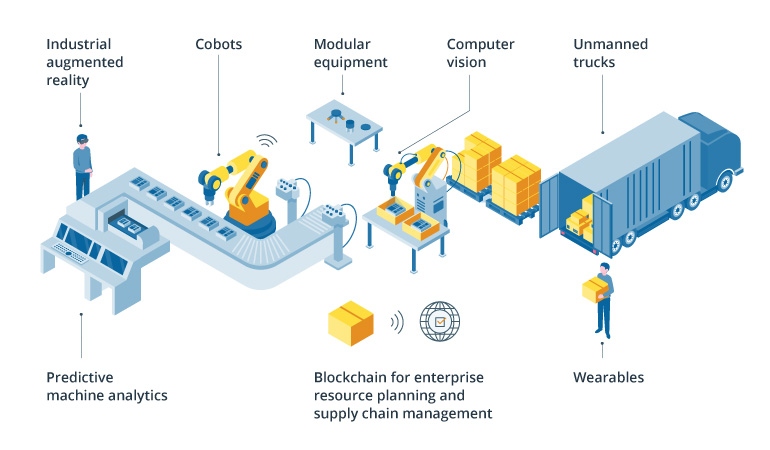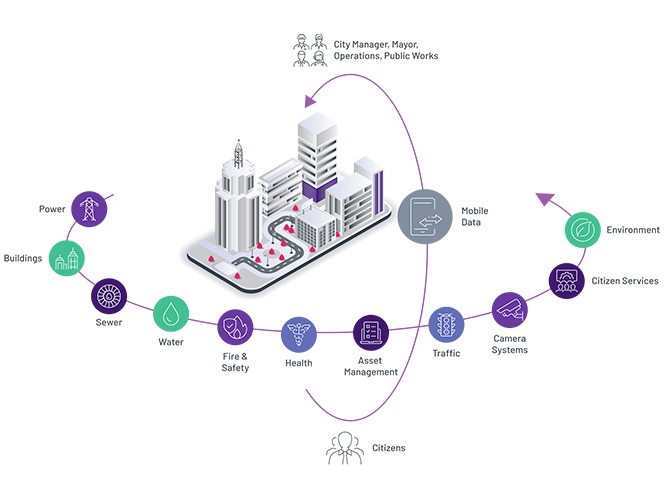
Industry 5.0: Converging Tech Megatrends Shaping the Future of Smart Cities
Industry 5.0 is poised to revolutionize smart cities through groundbreaking innovative changes.
This new phase is marked by an unprecedented increase in deep tech developments and adoption, significant shifts in global population demographics, and the imminent transition to Web 3.0.
Industry 5.0 was first coined by Michael Rada in 2015. The essence of Industry 5.0 lies in its ability to integrate human ingenuity with advanced technological systems, fostering a more personalized, sustainable, and human-centric approach to industrial production and building sustainable, smart cities. This era is about enhancing efficiency and enriching the quality of life for future generations.
The Impact of Converging Tech Megatrends

The convergence of technological megatrends fundamentally reshapes the economic landscape, giving rise to novel economies. These trends include the growth of artificial intelligence (AI), the Internet of Things (IoT), robotics, biotechnology, and more. As these technologies merge, they catalyze the emergence of new market dynamics and investment opportunities, highlighting the importance of innovation in driving economic growth and sustainability.
Rising Novel Economies
Integrating advanced technologies is birthing novel economies where digital platforms, sustainable energy solutions, and biotech innovations become the cornerstones of economic activities. These economies leverage the power of AI and machine learning to create more efficient, autonomous systems that propel industries forward.
Increased Investments
With the promise of revolutionary changes by Industry 5.0, there has been a significant uptick in investments targeting deep tech sectors. Venture capitalists and governments worldwide are channeling resources into technologies that promise to drive the next wave of industrial evolution, from AI-driven analytics to renewable energy technologies.
Growing Metaverse and Evolving Industrial Omniverse™
The maturing metaverse offers a novel global immersive space where users can live, work, shop and entertain themselves. In parallel, the industrial Omniverse™ is growing rapidly and is set to revolutionize industries by providing unprecedented operational visibility, predictive analytics, and system efficiency.
Building Smart Urban Ecosystems
The urban landscape is also undergoing a radical transformation with the development of smart urban ecosystems. These ecosystems leverage IoT, AI, and big data to create cities that are more livable, resilient, and sustainable. From intelligent transportation systems to smart energy grids, the foundation is being laid for urban environments that can sustainably support future generations.
Challenges of Industry 5.0

As Industry 5.0 unfolds, it brings forth legal and regulatory challenges. Formulating standards for Industry 5.0, ensuring interoperability among diverse technological systems, and establishing a framework for cyber-ethics are paramount. These challenges require a global dialogue among policymakers, technologists, and industry leaders to create a cohesive regulatory framework that supports innovation while protecting individual rights and promoting ethical standards. Developing and deploying robust, proactive cyber-ethics programs is imperative to repair, gain, or maintain digital trust in this era.
Future Directions of Industry 5.0

Several key technologies will influence the trajectory of Industry 5.0:
- Quantum Computing: Promising to revolutionize data processing, quantum computing will enable industries to solve complex problems millions of times faster than current capabilities.
- 6G Networks: The advent of 6G will usher in ultra-reliable, high-speed communications, supporting the massive data flows required by Industry 5.0 technologies.
- Satellite Internet: Offering global broadband coverage, satellite internet will ensure that remote and underserved regions can participate in the digital economy.
- Autonomous Systems: Autonomous systems will enhance efficiency, safety, and sustainability within smart urban ecosystems
- Brain-Computer Interfaces: If deployed responsibly, Brain-Computer interfaces (BCIs) will transform Industry 5.0 by integrating human cognition with technology, enhancing productivity and optimizing human-machine collaboration, ushering in a new era of interconnectedness and efficiency.
To Sum Up
As we navigate the complexities of Industry 5.0 we are presented with numerous complex challenges that must be overcomed. However, it also brims with opportunities to redefine the industrial landscape and build smart cities for future generations. By addressing the legal, regulatory, and interoperability considerations head-on, we can harness the full potential of converging tech megatrends.
The future of Industry 5.0 is not just about technological advancement but about creating a more interconnected, sustainable, and human-centric ecosystem. Through collaboration, responsible innovation, and foresight, we can lay the groundwork for a future that leverages the strengths of quantum computing, 6G, satellite internet, autonomous systems, and Brain-Computer Interfaces paving the way for a new era of industrial and societal prosperity.
Trending
-
1 How Does SaaS Differ From IaaS And PaaS?
Fabrice Beaux -
2 Single Page Applications vs Multi-Page Applications
Fabrice Beaux -
3 Top 7 Effective Strategies for Multi-Language Website Development
Fabrice Beaux -
4 Boost Engagement to Infinity and Beyond: Unleashing AI-Driven Support
Anas Bouargane -
5 The Cheapest And Most Beautiful Stickers in CS2
Daniel Hall





Comments